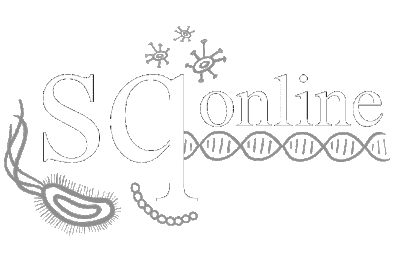BY Grace Sahyouni | SQ WRITER | SQ 2017-2018
[hr gap=”null”]
The world’s largest and most conclusive national genetic database can be found on a remote island in Europe with vast landscapes, exquisite waterfalls, and roaring volcanoes. Iceland’s unique geographic isolation is precisely what makes this country an excellent candidate for gene sequencing. A biopharmaceutical company called deCODE, based out of Iceland’s capital, Reykjavik, pioneered a project to sequence the full human genome by collecting blood samples from over 100,000 Icelanders. In addition, a registry of the population’s medical histories including diagnoses, procedures, and prescriptions has been created and is ever growing. Together, these two databases function to provide researchers with insights into diseases such as Alzheimer’s disease or multiple myeloma (a form of cancer), that would not exist otherwise.
The task of genome mapping an entire nation seemed impossible, yet Iceland’s small population of approximately 332,000 people made the endeavor seemingly feasible. Iceland was a good candidate for the project because tight-knit communities pass news through word of mouth, which allowed for a high participation rate. In addition to this practical feature, Icelandic people are also genetically homogeneous. About 90% of the population can trace their lineage to original Icelandic settlers. This lack of genetic variability can be attributed to Iceland’s historically low immigration/emigration rates due to its geographic isolation and harsh climate. This provided researchers with an advantage in identifying disease-causing variants in a genetically similar population. These unique characteristics of Iceland made the nation a great choice for genetic research.
One way researchers are utilizing this genetic information is by studying the connection between a harmless condition that often precedes the onset of multiple myeloma. This condition is called monoclonal gammopathy of undetermined significance (MGUS). It occurs when white blood cells called plasma B cells produce abnormal antibodies such as the M protein. This peptide is usually nonfunctional; however, sometimes it can attack the host’s normal body antigens,causing immune problems leading to the development of multiple myeloma. Not all people diagnosed with MGUS develop cancer, but it is estimated that approximately 40% of those diagnosed do. Given Iceland’s detailed registry, the International Myeloma Foundation (IMF) is able to conduct a large scale MGUS screening and track whether MGUS patients develop myeloma or not. This study will provide researchers with information that can lead to early diagnosis, prevention, and ultimately, a cure.
While the IMF is an example of ongoing research, the database has already discovered that certain genes cause a predisposition to Alzheimer’s disease (AD), a progressive neurodegenerative disease that results in memory loss. Analysis of the Icelandic population’s genome showed that few people had a rare allele that inhibited the BACE1 pathway. BACE1 is an enzyme that cleaves a protein improperly leading to increased production of amyloid plaques, or sticky peptides that accumulate to toxic levels in the brain of an AD patient. This genetic variant prevents these plaques from developing and carriers of this trait were overall less likely to develop Alzheimer’s. Icelandic geneticist and founder of deCODE Genetics, Kári Stefánsson, states that “the mutation carries almost complete protection against Alzheimer’s” and this discovery implies that “if you succeed in making a good inhibitor, you will slow down and even prevent AD“. On the other hand, deCODE researchers also discovered a mutation in the ABCA7 gene which doubles the risk of AD in Icelandic people. deCODE’s parent company, Amgen, is working on developing drugs based on these genetic findings.
The opportunity for research findings have encouraged other companies to attempt to replicate the project in countries such as Qatar with a similar, homogenous population. Although the approach to gene sequencing in Iceland is promising, it does have its limitations. Due to the small population size, the generalizability of the results to other populations may not be possible. However, the giant genome database in Iceland can be appreciated as being a deeply informative project that can potentially provide groundbreaking medical discoveries in the prevention and treatment of certain diseases.
Sources:
http://www.cnn.com/2017/03/16/health/iceland-genes-genealogy-alzheimers-exp/index.html
https://www.wired.com/2015/03/iceland-worlds-greatest-genetic-laboratory/
https://www.ncbi.nlm.nih.gov/pubmed/15199942
https://www.myeloma.org/sites/default/files/images/publications/UnderstandingPDF/u-mgus_smm.pdf
https://www.ncbi.nlm.nih.gov/pubmed/15126696
